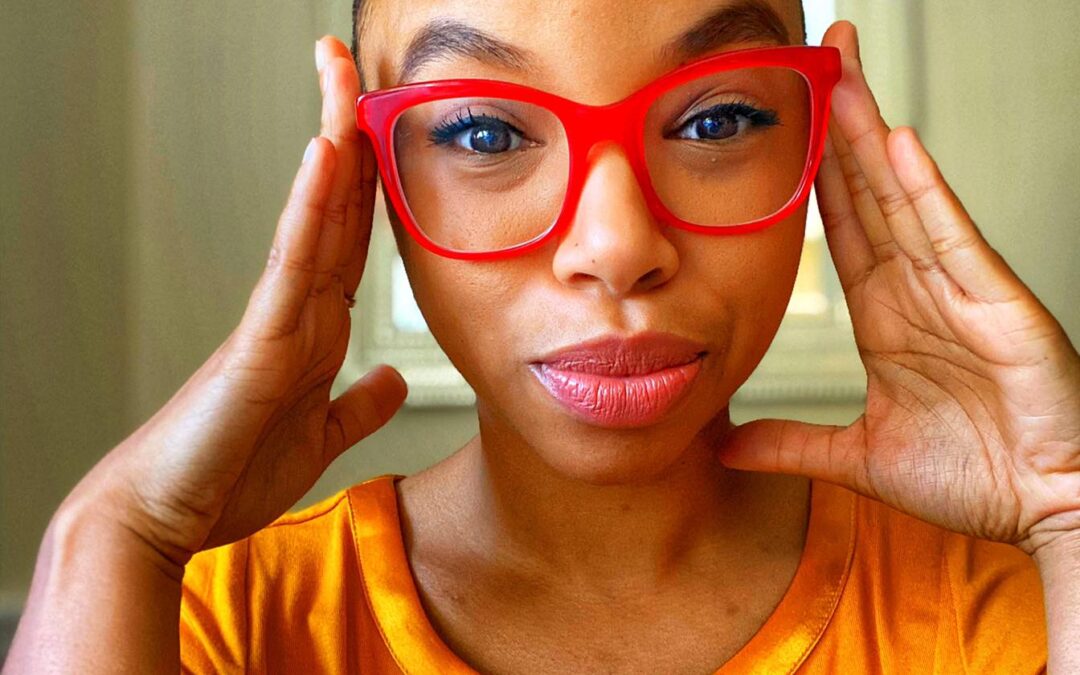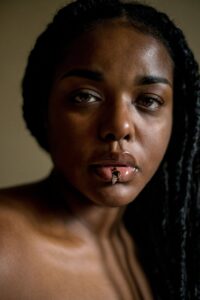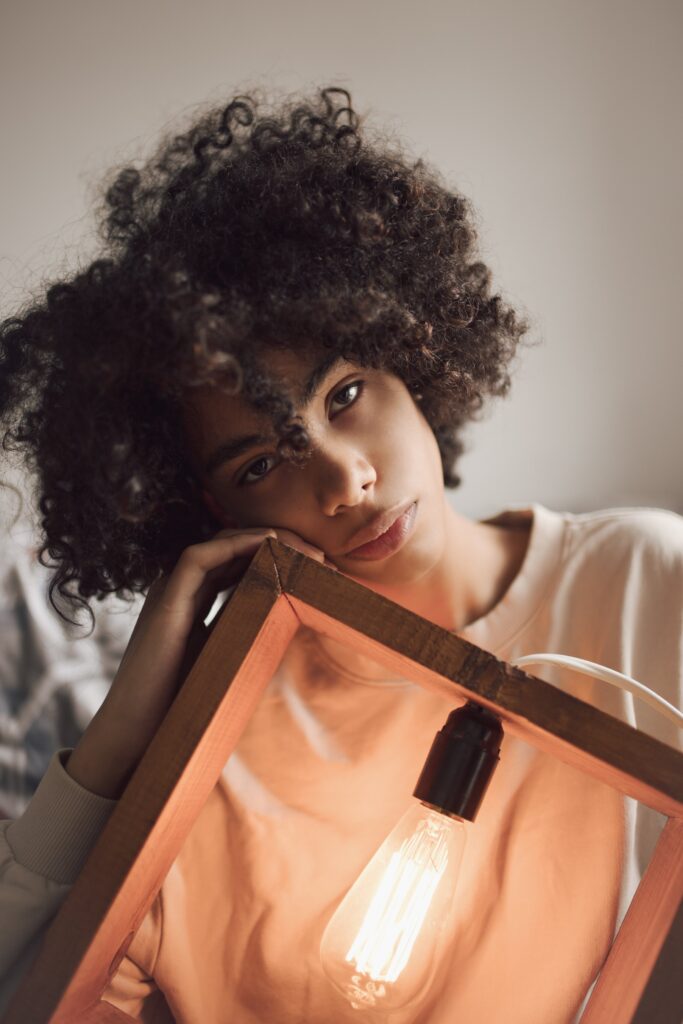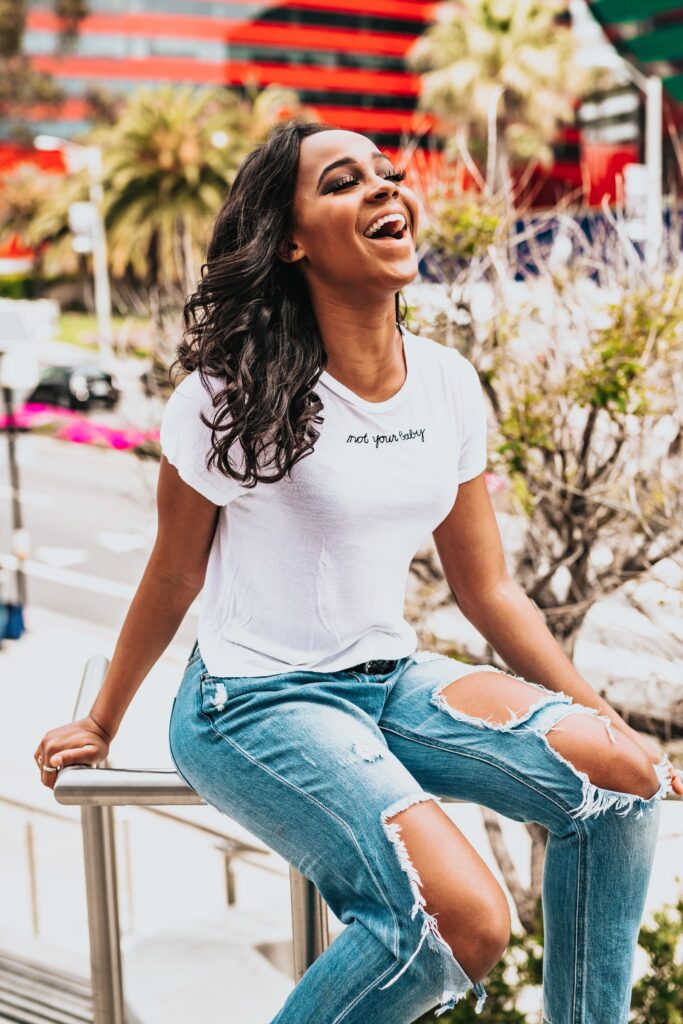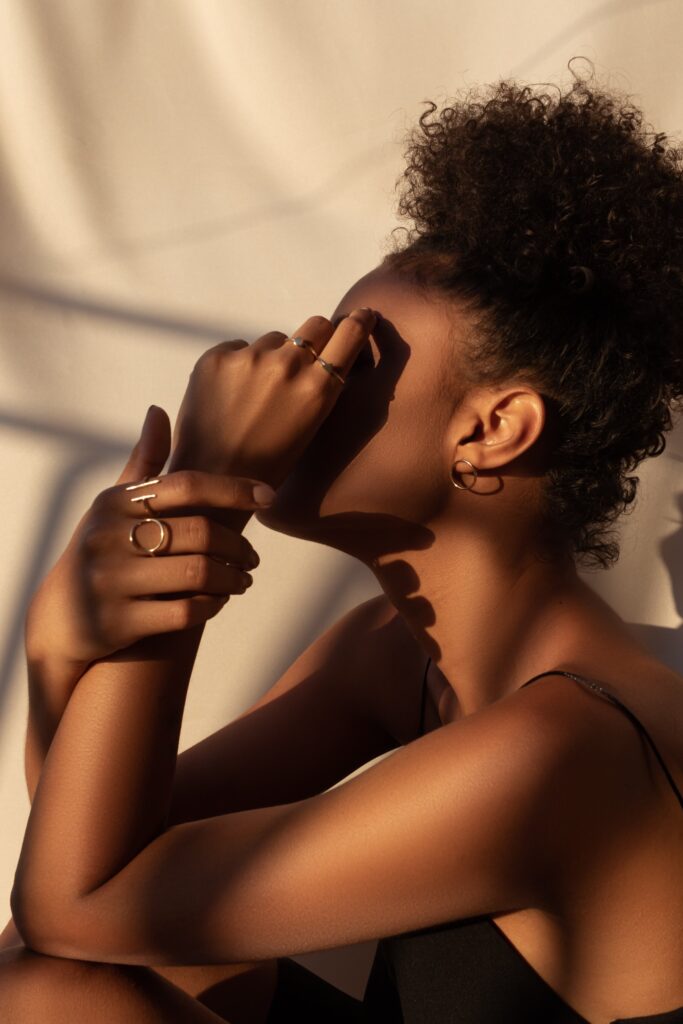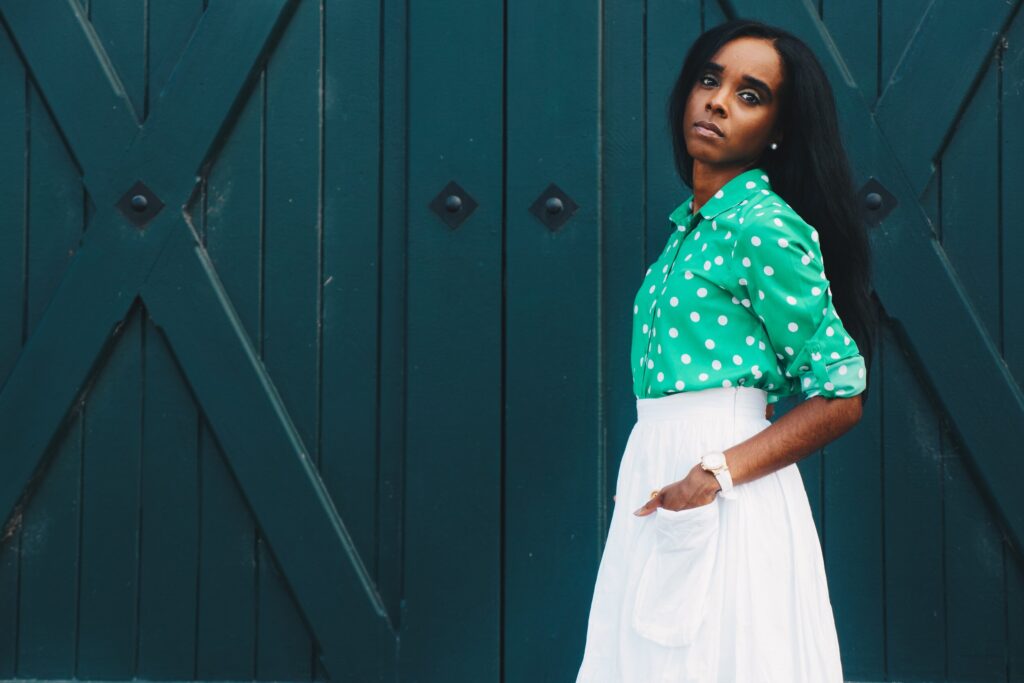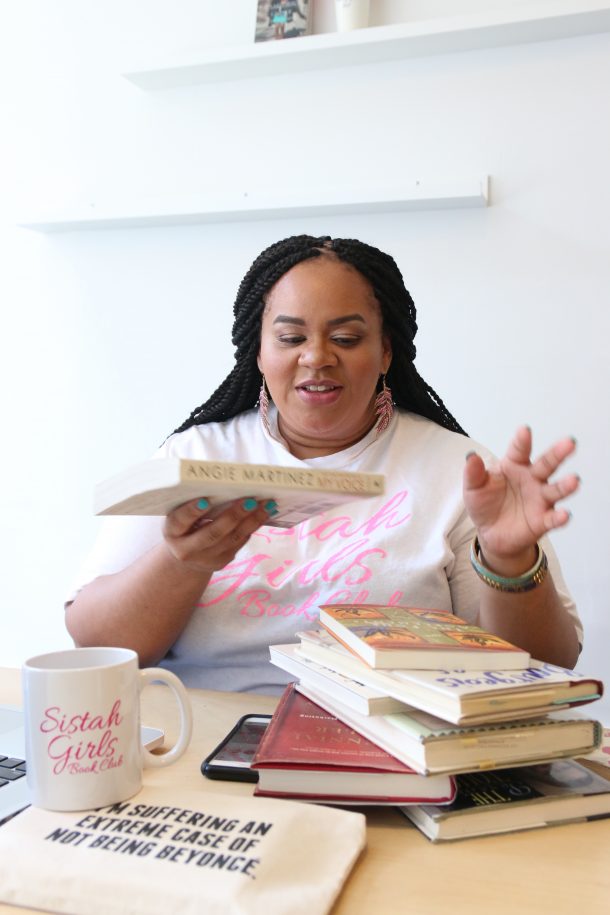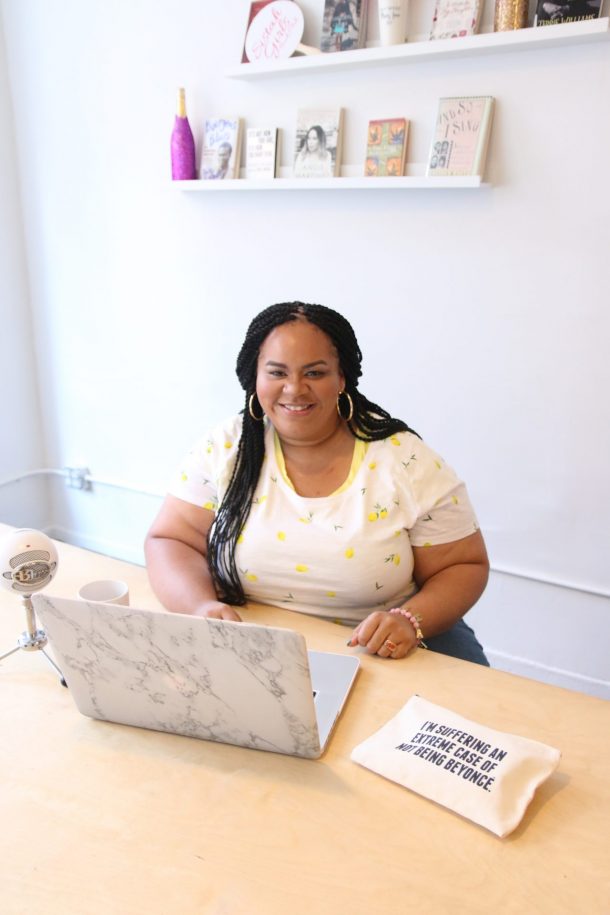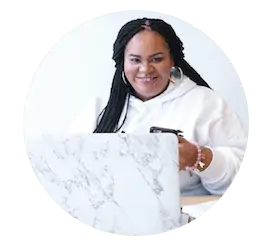Sistah Girls, Black Women Storytellers is an interview series that amplifies women who use different mediums and styles of writing to share their stories with the world.
Ashley J. Hobbs is a writer, podcast producer, and speaker whose work sits at the crash site of storytelling and culture. With attention to detail, she centers marginalized nuance. The goal of Ashley’s writing and producing is always to inform, encourage, connect, and evoke. Currently, she produces Holding Court with Eboni K. Williams for iHeart’s Black Effect Network.
I met Hobbs on the internet by way of Twitter, I was immediately drawn to her personality, and then she began dropping these dope monologues that centered Black women. Each monologue was layered and felt extremely familiar, it was as if a bunch of Black women had left their diaries open for us to read.
Black storytelling through a Black women’s lens is sacred. It’s empowering to see us leaning into our talents to transform an industry that was designed without our stories in mind.
I got the chance to speak with Hobbs to learn more about how she began her career as a writer and how her Living Monologues came to be.
The interview has been edited and condensed for clarity. Click on the portraits of Black women as you read the interview to read from Hobbs’ Living Monologues.
SGBC: What was your first introduction to Black woman/girl storytelling and how did those stories impact your writing?
Ashley: My introduction to Black woman storytelling was through the women in my family. The conversations around the dinner table, my aunt using storytelling in her Sunday sermons as my pastor, the family folklore passed around during holidays or while gardening or doing each other’s hair or cleaning up after a big family dinner. No one weaves a tale like a Black woman.
In terms of books–Roll of Thunder, Hear My Cry, and The Skin I’m In are my earliest memories of books that centered Black girls with whom I felt a connection, from the descriptions of their family life to their internal monologues and angst and curiosity.
Living Monologues | Nori
SGBC: What inspired you to create a short story series featuring Black women?
Ashley: I was tired of running from writing. I knew I was always meant to write fiction at some point but I wouldn’t commit to it for fear that I’d be absolute trash at it. So I settled (in my ability) for writing articles and listicles for outlets that centered on Black women. Writing for those outlets filled a part of my desire to center Black women but there was still a void because I knew a foray into fiction was missing.
January 2021 I decided to commit to exploring Black women’s internal worlds through my blog series Living Monologues. I told myself that I was going to master character development, and figure out story arcs and represent the variety of Black women’s experiences. And that’s what I’m doing.
Living Monologues | Jessica
SGBC: Each woman’s story is unique but they all feel familiar, where did you pull from to make sure that each character had their own voice?
Ashley: For the majority of them, I just began to free-write. I remember I had a list of names that came to me and I would pick a name and just start to free-write. Their identities became clear as I wrote without stopping. And I can be an incredibly angsty writer/creator so to force myself to write without stopping to analyze or criticize or catastrophize my work? DIF-FI-CULT.
But what I didn’t realize a few months ago, that I realize now is that I was learning to trust the character and not try to make the character who I wanted her to be. And that feels like an even more meta lesson now that I think about it. Because how often are Black women pushed, and pulled, and molded, and boxed to be what society wants us to be?
Hell, we often do it to each other because we’re afraid of being too much or drawing too much attention to ourselves. So, honestly, as I became freer in myself, it became easier to let the characters tell me about themselves instead of me imposing on them.
I can look back and see exactly which stories I wrestled with the character, trying to make her shapeshift. I was fighting with the story that wanted to be told because of my own discomfort with where it might lead or just trying to rush the process. I can tell where I fought the character in the writing but I won’t go back and change it because I like being able to see my progress.
Living Monologues | Diana
SGBC: When writing, do you think about your own identity and how that plays a part in how you see the world?
Ashley: I definitely think about my own identity when I write. The book of short stories I’m working on now has me thinking about my identity every single time I sit down on my laptop or pick up my notebook or hit Voice Record on my phone. On one hand, I’m writing from experiences I and many other Black women have had that I don’t really see in literature but on the other hand I want to be true to the characters and their worlds.
I want my identity to inform my work inasmuch that I follow Toni Morrison’s lead and write to communicate to Black women first and foremost. And if others follow and understand, that would be fabulous. But if they don’t… It’s never a loss because Black women are the center and their attention and understanding are the diamonds I’m mining for.
SGBC: You openly speak about being a woman of God, does your religious beliefs help or hinder your writing when you decide what topics you will or won’t discuss?
Ashley: This question is like a mini therapy session breakthrough. I hadn’t thought about how my faith helped or hindered my writing (outside of God giving me the ideas that have been flooding me since last year) until this question. What I know immediately is that yes, my faith influenced my writing in two ways.
First, every bit of fiction I tried to write before 2021 lacked depth and conviction. I know that is because of the way my faith was pre-packaged and handed to me growing up. I was afraid to “go there” in my creativity because the church wouldn’t understand and maybe God wouldn’t understand.
But now, since I’ve been on a journey with God that I can truly call my own over the past couple of years, it’s released me. I’m stepping further into my fullest self – unafraid of making mistakes. And I’m creating with depth, creativity, imagination, and irreverence that I held myself back from out of fear.
God made me creative. He made me bold. He began this whole thing and He’s completing it. As I lean into that and co-create with Him this year my creativity has flourished in ways I can’t really describe. So if the church has an issue, they’ll have to take it up with Jesus!
Living Monologues | Amina
SGBC: What do you want Black women who read your series to take away?
Ashley: I want Black women to know someone out here really knows them and won’t dumb down their experiences for marketability. I want Black women to know their stories are going to be told wholly. I want them to get curious about other Black women whose lives are different from their own–if they aren’t curious already. I want Black women to know that even down to the minutiae, their lives are important.
SGBC: Do you plan on expanding these monologues into a book or scripted show?
Ashley: Yes but with a twist. I’m writing a book of short stories right now and it’s speculative fiction that delves into the supernatural and a bit of mythology centering Black women and girls. The big question that I interrogate in these stories is: Who could Black women and girls be if they were unequivocally allowed to explore their faith, agency of their bodies and gifts, their sense of community, and their femininity?
The stories follow Black women and girls of varying ages, from all different walks of life and time periods. There’s a drug dealer from the 1930s; a 7-year-old who can see people’s pasts in the 1960s; a clairvoyant teen on her way to Freaknik; enslaved Black women whose feet glow in the dark…etc. God literally started dropping these far-out ideas into my brain last year and I just kept writing the ideas down as they came. They were too powerful and intriguing for me to sit on them.
It’s a ride and it’s my way of celebrating the “magic” we keep discussing when we talk about Black women and drawing in elements we’ve often been afraid or unsure of how to honor publicly.
Living Monologues | Tangie
SGBC: You also work with audio in your storytelling, tell us more about using that medium to tell a story.
Ashley: Yes, I’m an audio producer. Most recently, I produced Holding Court with Eboni K. Williams, a legal podcast for the culture – as I like to call it. Before this, I was over at ESSENCE Podcast Network. Centering Black women…my history proves it’s in my DNA.
I’m always going to attract opportunities to uplift Black women in audio. Most of my audio work has been for conversational shows which I enjoyed because I learned so much from guests both famous and not. Helping to get incredible Black people a little more visibility on those shows was a joy.
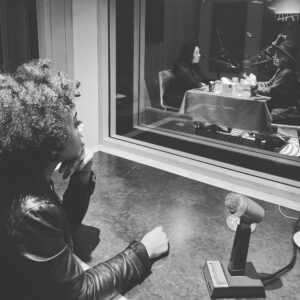
I learned the true art of interviews from watching some of the best journalists like the Yes, Girl! hosts – Deputy Editor over at ESSENCE, Cori Murray and Lifestyle Director, Charli Penn! I’m excited to keep growing and expanding in audio and make some audio documentaries as well as audio dramas. It’s a challenge because we’re working with only one of our senses but man, the end result can be so beautiful because we’re helping people to imagine again.
SGBC: There are so many Black woman storytellers but so few spaces that want to amplify their voices, what other mediums would you like to see your stories in the future?
Ashley: I want to work with visual artists and have my short stories in galleries next to visual art that reflects the story and vice versa. I want my book of short stories adapted into an anthology series on a streaming service and I want to executive produce.
I want to hear my stories come to life through an audio drama. As an audio producer, I’m always thinking about and writing down ideas for audio plays that can center Black women. No one tells stories like us. We belong EVERYWHERE.
I’d even like to work with a brand to include (very) short stories on their packaging like Chipotle did on their bags 7 or 8 years ago. There are so many ways to get our voices out there.
SGBC: If you could drop one gem to a Black woman or girl who wants to write but feels like the market is oversaturated, what would that gem be?
Ashley: I don’t know that I have anything to say that hasn’t been said a million times. But there’s only one you. We create the market by creating!
People are waiting on us to master our craft and give to the world the thing that only we know how to do best. You’ll be afraid but that’s good. When I’m about to embark on something fear lets me know it’s bigger than me, divinely inspired, and I need God to carry it through. If I could do it all on my own, it’s not big enough and it won’t go far enough.
SGBC: What’s next for Ashley?
Ashley: I’m just going to finish writing this book, get myself an agent, and watch what God does.
Sistah Girls, it was a pleasure speaking with Ashley, be sure to follow her on the internets: Website | Twitter | LinkedIn
